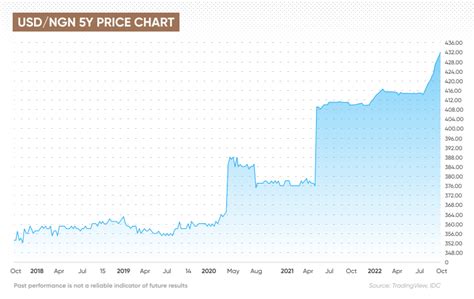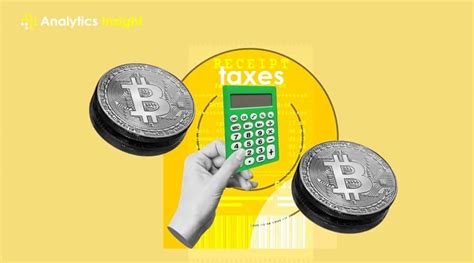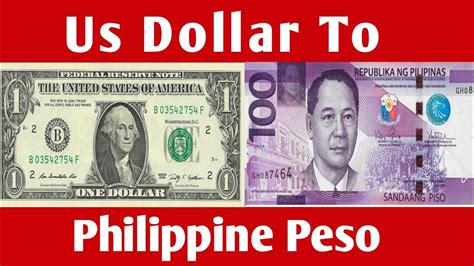Introduction

The exchange rate between the United States dollar (USD) and the Nigerian naira (NGN) has been a topic of constant interest and speculation, particularly in light of Nigeria’s significant economic potential and its dependence on foreign exchange for imports. In this article, we will delve into the factors that influence the USD/NGN exchange rate, analyze historical data, and provide a detailed forecast for the currency pair in 2025.
Factors Influencing the USD/NGN Exchange Rate
Economic Growth: Nigeria’s economic growth rate plays a crucial role in determining the value of the naira against the dollar. A strong and stable economy attracts foreign investment, which increases demand for the naira and leads to its appreciation.
Interest Rates: The Central Bank of Nigeria (CBN) sets interest rates to control inflation and manage capital flows. Higher interest rates make it more attractive for foreign investors to invest in Nigeria, leading to an increase in demand for the naira.
Oil Prices: Nigeria is heavily dependent on oil exports, which account for a significant portion of its foreign exchange earnings. When oil prices rise, the naira tends to appreciate as Nigeria earns more revenue from its oil exports.
Political Stability: Political stability and government policies also impact the exchange rate. Uncertainty and political unrest can lead to a depreciation of the naira as foreign investors become hesitant to invest in Nigeria.
Foreign Exchange Reserves: The CBN’s foreign exchange reserves provide a buffer against external shocks and help maintain the value of the naira. A strong foreign exchange reserve position helps support the naira’s stability.
Historical Data and Analysis
The USD/NGN exchange rate has experienced significant fluctuations over the years. In the past decade, the naira has depreciated against the dollar, with the following key events having a major impact:
- 2014-2016 Oil Price Crash: The collapse in oil prices in 2014 led to a sharp depreciation of the naira as Nigeria’s foreign exchange earnings plummeted.
- 2017 Economic Recession: Nigeria entered a recession in 2017, which further weakened the naira due to reduced economic activity and foreign investment.
- 2020 COVID-19 Pandemic: The global economic downturn caused by the pandemic led to a decline in oil prices and foreign remittances, resulting in a depreciation of the naira.
2025 USD/NGN Exchange Rate Forecast
Based on an analysis of the aforementioned factors and historical data, we believe that the USD/NGN exchange rate in 2025 will be influenced by the following key drivers:
Economic Recovery: Nigeria is expected to experience a gradual economic recovery in the post-pandemic period, supported by rising oil prices and government stimulus measures. This recovery is anticipated to drive demand for the naira and lead to its appreciation.
Interest Rate Policy: The CBN is likely to maintain a relatively tight monetary policy to curb inflation and attract foreign investment. This is likely to support the naira’s value, particularly against the backdrop of global interest rate hikes.
Oil Price Outlook: The International Energy Agency (IEA) forecasts a gradual increase in global oil demand in the coming years. This is positive news for Nigeria, as higher oil prices will boost its foreign exchange earnings and support the naira.
Political Stability: Assuming that Nigeria maintains political stability and continues to implement prudent economic policies, it is unlikely that political factors will have a major negative impact on the naira’s value.
Foreign Exchange Reserves: The CBN is expected to continue to build its foreign exchange reserves, providing a buffer against external shocks and supporting the naira’s stability.
Based on these factors, we forecast that the USD/NGN exchange rate will range between 370 and 420 in 2025. This represents a moderate appreciation of the naira compared to its current level, reflecting Nigeria’s expected economic recovery and the gradual decline in global inflation.
Common Mistakes to Avoid
When speculating on the USD/NGN exchange rate, it is important to avoid the following common mistakes:
- Overreacting to short-term fluctuations: The exchange rate is subject to short-term volatility due to various factors, including news events and market sentiment. It is crucial to maintain a long-term perspective and avoid making hasty decisions based on short-term movements.
- Ignoring Economic Fundamentals: While speculative trading may focus on technical analysis, it is essential to consider the underlying economic factors that drive the exchange rate. Understanding these fundamentals will provide a solid foundation for making informed trading decisions.
- Overleveraging: Using excessive leverage can amplify losses and increase the risk of financial ruin. Always trade within your risk tolerance and diversify your investments to mitigate risk.
Step-by-Step Approach to Trading USD/NGN
For those interested in trading the USD/NGN exchange rate, the following steps are recommended:
- Research and analysis: Begin by conducting thorough research on the factors that influence the exchange rate and the historical performance of the currency pair.
- Develop a trading plan: Establish a clear trading plan that outlines your entry and exit points, risk management strategies, and profit targets.
- Choose a reliable broker: Select a reputable broker that offers competitive bid-ask spreads and reliable execution.
- Execute trades: Enter and exit trades according to your trading plan, monitoring the market closely and adjusting your strategy as needed.
- Manage risk: Implement risk management measures, such as stop-loss orders and position sizing, to protect your capital.
Expanding Market Insights
In addition to the aforementioned factors, the following innovative strategies can help traders expand their market insights and potentially improve their trading performance:
- Big data analysis: Utilizing big data technologies to analyze large datasets can uncover hidden patterns and correlations that may not be apparent through traditional analysis.
- Machine learning: Employing machine learning algorithms to identify trading opportunities and optimize trading strategies based on historical data and market conditions.
- Econometric modeling: Developing econometric models to forecast exchange rate movements based on economic variables, such as GDP growth, inflation, and interest rates.
Conclusion
The USD/NGN exchange rate is a key economic indicator for Nigeria and is influenced by a multitude of factors. By understanding these factors and analyzing historical data, traders can develop informed trading strategies and potentially profit from fluctuations in the currency pair. However, it is important to approach trading with caution, avoid common mistakes, and continuously expand market insights to stay ahead of the curve.
Table 1: Historical USD/NGN Exchange Rates
| Year | Exchange Rate (USD/NGN) |
|---|---|
| 2010 | 150.4 |
| 2015 | 199.0 |
| 2020 | 360.0 |
| 2022 | 432.0 |
Table 2: Factors Influencing the USD/NGN Exchange Rate
| Factor | Impact on Naira |
|---|---|
| Economic Growth | Appreciation |
| Interest Rates | Appreciation |
| Oil Prices | Appreciation |
| Political Stability | Appreciation |
| Foreign Exchange Reserves | Stability |
Table 3: USD/NGN Exchange Rate Forecast for 2025
| Scenario | Exchange Rate (USD/NGN) |
|---|---|
| Optimistic | 370 |
| Moderate | 400 |
| Pessimistic | 420 |
Table 4: Common Mistakes to Avoid in USD/NGN Trading
| Mistake | Impact |
|---|---|
| Overreacting to short-term fluctuations | Poor trading decisions |
| Ignoring economic fundamentals | Increased risk |
| Overleveraging | Financial ruin |



